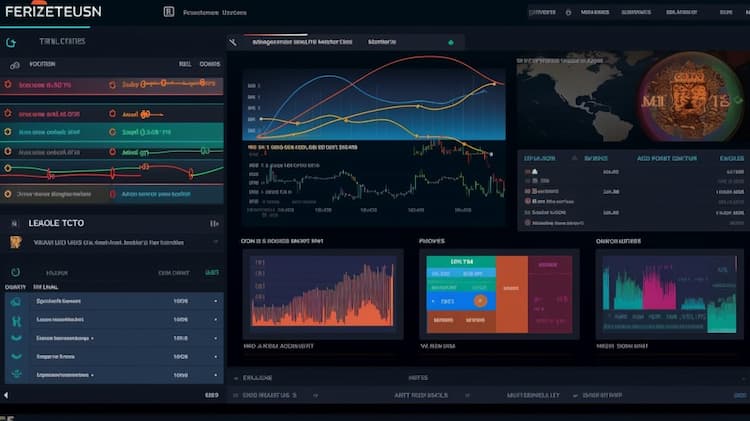
Is EZU suitable for long-term investment?
Investing in exchange-traded funds (ETFs) has become increasingly popular among investors looking for diversified exposure to various financial instruments. In this article, we will explore the EZU ETF and answer some frequently asked questions to help you determine if it is suitable for long-term investment.
EZU ETF: Understanding the Basics
The EZU ETF, also known as the iShares MSCI Eurozone ETF, is designed to track the performance of the MSCI Eurozone Index. It provides investors with exposure to large and mid-cap companies in 10 European countries, including Germany, France, and Spain. The fund's objective is to reflect the equity market performance of the Eurozone region as a whole. With its diversified holdings, the EZU ETF offers an opportunity for long-term investment growth.
Why Consider EZU ETF for Long-Term Investment?
Diversification: By investing in the EZU ETF, you gain exposure to a broad range of companies across multiple European countries. This diversification helps reduce the risk associated with investing in a single company or market.
Eurozone Market Potential: The Eurozone is home to several strong economies and globally recognized companies. By investing in the EZU ETF, you have the opportunity to participate in the growth of these economies and potentially benefit from their long-term success.
 EZU overlap Is EZU suitable for long-term investment?
EZU overlap Is EZU suitable for long-term investment?
Considerations for Investing in EZU ETF
Market Volatility: Like any investment, the EZU ETF is subject to market volatility. It is important to consider your risk tolerance and investment objectives before investing in this ETF.
Currency Risk: The EZU ETF invests in Eurozone companies, which exposes investors to currency risk. Changes in exchange rates between the Euro and your local currency can impact the value of your investment.
Economic Conditions: The performance of the EZU ETF can be influenced by economic conditions within the Eurozone. Monitoring economic indicators and staying informed about the region's economic health is essential for long-term investors.
Long-Term Investment Potential of EZU ETF
The EZU ETF can be considered a viable option for long-term investment due to its diversification benefits and exposure to the Eurozone market. However, it is crucial to conduct thorough research, assess your risk tolerance, and consult with a financial advisor before making any investment decisions.
When it comes to long-term investment, the EZU ETF offers the potential for diversification and exposure to the Eurozone market. However, it is essential to evaluate your individual investment goals, risk tolerance, and conduct thorough research before making any investment decisions.
Disclaimer: This article does not provide any investment advisory services.
Source 1: EZU issuer website Source 2: Reuters article about EZU
EZU quote and analysis
Discover the top holdings, correlations, and overlaps of ETFs using our visualization tool.
Our app allows you to build and track your portfolio.
To learn more about the EZU iShares MSCI Eurozone ETF, access our dedicated page now.
FAQ
What does EZU mean?
EZU is the ticker symbol for the iShares MSCI Eurozone ETF. It represents an exchange-traded fund that aims to track the performance of the MSCI EMU Index, providing investors with exposure to equities from the Eurozone countries.
Is EZU suitable for long-term investment?
The suitability of EZU for long-term investment depends on individual financial goals, risk tolerance, and market conditions. It is advisable to conduct thorough research, analyze the potential risks and rewards, and consider consulting with a financial advisor before making any long-term investment decisions.
Are there any alternatives to EZU for investing in the Eurozone?
Yes, there are alternative ETFs and investment options available for investing in the Eurozone. Some examples include other Eurozone-focused ETFs or mutual funds that provide exposure to European equities. It is recommended to compare the features, costs, and performance of different investment options and consider individual investment goals before making a decision.
What are the risks associated with investing in EZU?
Risks associated with investing in EZU can include general market risks, political and economic uncertainties within the Eurozone, currency exchange rate fluctuations, volatility in European stock markets, and risks specific to individual countries within the Eurozone. It is important to consider these risks and conduct thorough research before making investment decisions.
What is EZU?
EZU is an exchange-traded fund (ETF) that represents the iShares MSCI Eurozone ETF. It holds a portfolio of stocks from companies listed in the Eurozone countries, providing investors with exposure to the equity markets of the Eurozone.



